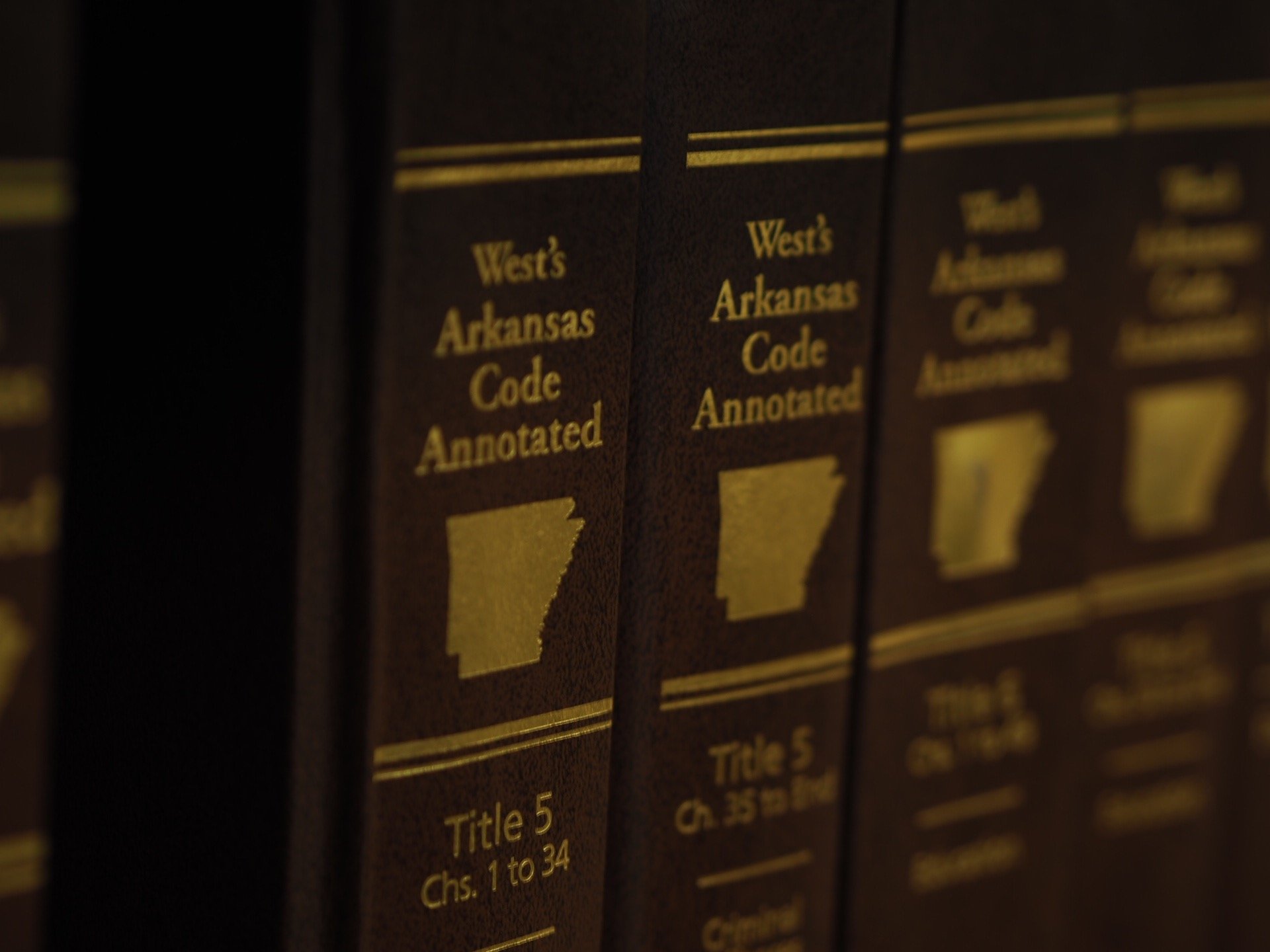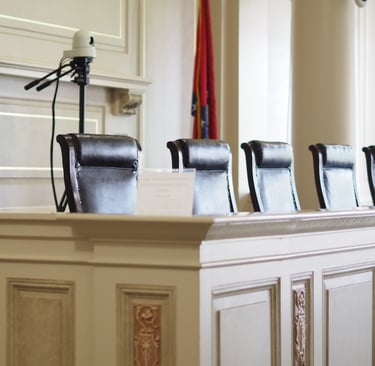
Federal Conspiracy Charges in Arkansas: How the Law Defines “Agreement”
Facing a federal conspiracy charge in Arkansas? Learn how “agreement” and intent determine guilt — and how Ludwig Law Firm builds a defense.
FEDERAL CRIMINAL DEFENSE
Common Types of Federal Conspiracy Cases in Arkansas
Conspiracy means agreeing with at least one other person to commit a federal crime — even if the crime itself never happens. In Arkansas, conspiracy is one of the most frequently charged federal offenses because it connects multiple individuals to a single plan or transaction.
To prove conspiracy, the government must show two things:
An agreement between two or more people to break the law.
Intent to carry out that illegal act.
No written contract or completed act is necessary. Even informal coordination can qualify as an “agreement” if actions or communications show a shared plan.
As always - if you have a legal question you want answered in a future blog, submit it via the form on this page. Now, let's dive in!
Building a Defense in a Conspiracy Case
Every federal conspiracy defense starts with challenging the “agreement.” Was there actual coordination, or just coincidence? Were communications taken out of context? Was participation voluntary, or pressured by another person?
Your defense team can fight during multiple stages, helping you beat the odds:
Challenge how investigators defined the “agreement.”
Review surveillance, texts, and recordings for context.
Identify mitigating factors that reduce potential penalties.
If you’ve been contacted in connection with a federal conspiracy case, contact Ludwig Law Firm's Arkansas criminal defense attorneys at 501-838-4043 or visit our federal criminal defense page.
📞 Call Ludwig Law Firm today at 501-838-4043
🌐 Visit us at ludwiglawfirm.com
📍 Proudly serving clients across Arkansas, including Little Rock, Conway, and Pine Bluff.
Disclaimer: The information provided in this blog is for general informational purposes only and is not intended as legal advice. Reading this blog or interacting with Ludwig Law Firm through this content does not create an attorney-client relationship. Every legal case is different, and you should not act or rely on any information in this blog without first consulting with a licensed attorney about your specific situation. For legal guidance tailored to your needs, please contact Ludwig Law Firm directly.
Even text messages or recorded conversations can be used to claim there was an agreement. That’s why early legal counsel is critical — especially before interviews or document requests occur.
What Makes Conspiracy Different
Unlike many charges, conspiracy can hold a person responsible for the acts of others in the same “agreement.” That means one participant’s actions can increase exposure for everyone involved.
Sentencing in conspiracy cases depends on the object of the conspiracy — for example, the drug type or financial loss amount. Learn more about sentencing factors in Federal Drug Sentencing in Arkansas: How the Guidelines Work.
Ludwig’s Strategic Advantage: Why Our Arkansas Defense Lawyers Simply Win
Our firm tries cases in front of a jury all the time. That constant courtroom experience helps us dissect the evidence in federal conspiracy cases — from timelines and phone records to alleged “agreements.” For more than 43 years, Ludwig Law Firm has defended Arkansans in complex federal cases across both the Eastern and Western Districts.
When a case demands extra trial strength, we work closely with Harry Warden, a Little Rock criminal defense lawyer known for his courtroom power. Together, Ludwig and Warden Law Firms deliver a complete federal defense partnership.
Federal Criminal Defense (AR)
Federal Restitution Orders in Arkansas: What They Mean for Defendants
Federal Conspiracy Charges in Arkansas: How the Law Defines “Agreement”
Understanding the Real Cost of Hiring a Federal Criminal Defense Lawyer
Contact Us
For a Free Case Evaluation

Arrested for DWI/DUI?
Fill Out This 10-Question Survey
For Your Free Evaluation!

Why Arkansans Choose Ludwig Defense


Frequently Asked Questions
Q. What is the penalty for conspiracy in Arkansas federal court?
A. It depends on the object of the conspiracy. Drug conspiracies often carry the same penalties as the completed crime.
Q. Can I be charged if I didn’t finish the act?
A. Yes. Agreement and intent are enough — completion isn’t required.
Q. How can a lawyer help in a conspiracy case?
A. A lawyer reviews communication evidence, challenges how the “agreement” was defined, and builds a defense around intent.


